Solar UV-B Inhibits Growth of Maize Leaves
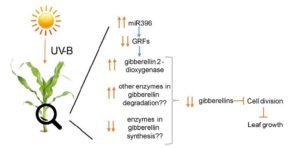 Growth inhibition is one of the most consistent plant responses to Ultraviolet-B (UV-B) exposure; this radiation, both as part of the solar spectrum in the field and from UV-B lamps in controlled environments. In this work, Fina et al. () demonstrate that the UV-B levels present in solar radiation inhibit maize (Zea mays) leaf growth without causing any other visible stress symptoms, including the accumulation of DNA damage. So how does UV-B inhibit leaf growth? To answer this question, the authors conducted kinematic analyses of cell division and expansion to understand the impact of UV-B radiation on these cellular processes. Their results demonstrate that the decrease in leaf growth in UV-B-irradiated leaves is a consequence of a reduction in cell production and a shortened growth zone. To determine the molecular pathways involved in UV-B inhibition of leaf growth, they performed RNA sequencing on isolated growth zone tissues of control and UV-B-exposed plants. Their results show a link between the observed leaf growth inhibition and the expression of specific cell cycle and developmental genes, including growth-regulating factors (GRFs) and transcripts for proteins participating in different hormone pathways. Interestingly, the decrease in the growth zone size correlates with a decrease in the concentration of gibberellic acid-19 (GA19), the immediate precursor of the active gibberellin, GA1, by UV-B in this zone. This decrease is regulated, at least in part, by the expression of GRF1 and possibly other transcription factors of the GRF family.
Growth inhibition is one of the most consistent plant responses to Ultraviolet-B (UV-B) exposure; this radiation, both as part of the solar spectrum in the field and from UV-B lamps in controlled environments. In this work, Fina et al. () demonstrate that the UV-B levels present in solar radiation inhibit maize (Zea mays) leaf growth without causing any other visible stress symptoms, including the accumulation of DNA damage. So how does UV-B inhibit leaf growth? To answer this question, the authors conducted kinematic analyses of cell division and expansion to understand the impact of UV-B radiation on these cellular processes. Their results demonstrate that the decrease in leaf growth in UV-B-irradiated leaves is a consequence of a reduction in cell production and a shortened growth zone. To determine the molecular pathways involved in UV-B inhibition of leaf growth, they performed RNA sequencing on isolated growth zone tissues of control and UV-B-exposed plants. Their results show a link between the observed leaf growth inhibition and the expression of specific cell cycle and developmental genes, including growth-regulating factors (GRFs) and transcripts for proteins participating in different hormone pathways. Interestingly, the decrease in the growth zone size correlates with a decrease in the concentration of gibberellic acid-19 (GA19), the immediate precursor of the active gibberellin, GA1, by UV-B in this zone. This decrease is regulated, at least in part, by the expression of GRF1 and possibly other transcription factors of the GRF family.


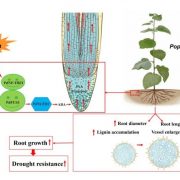
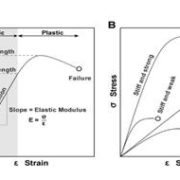
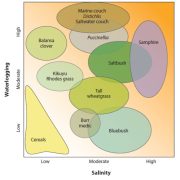
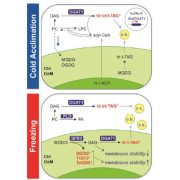
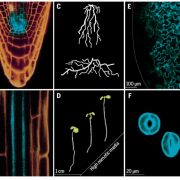
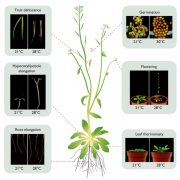

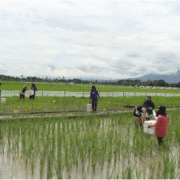


Leave a Reply
Want to join the discussion?Feel free to contribute!